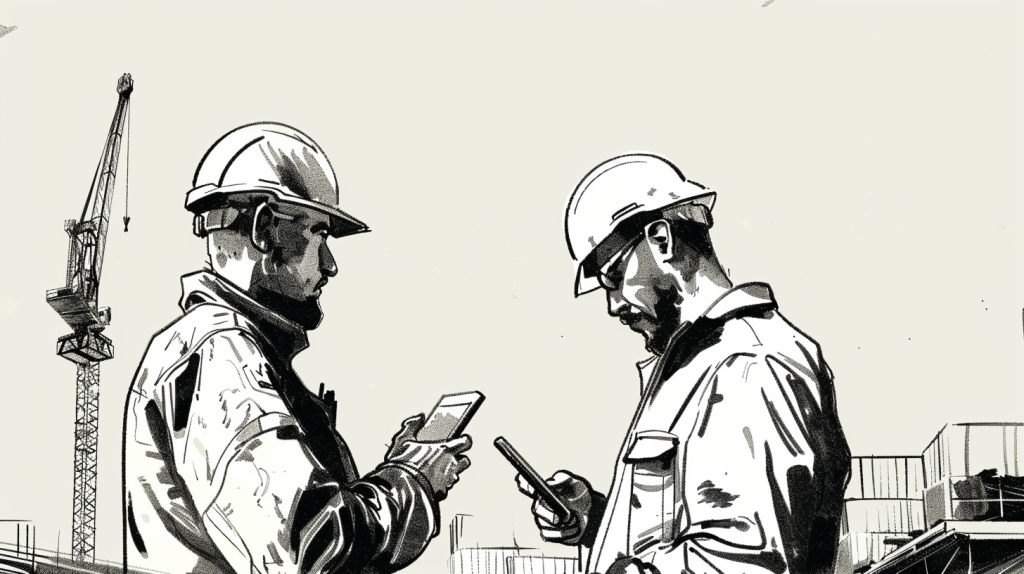Mastering Client Management in Construction: Essential Tools and Best Practices for Building Strong Relationships
Table of Contents:

Discover the essential tools and best practices for mastering client management in construction. Learn how to effectively communicate, manage expectations, and build strong client relationships to ensure project success and client satisfaction.
In the construction industry, client management is a crucial aspect of project success. Building strong relationships with clients, managing their expectations, and maintaining open lines of communication are essential for delivering projects that meet or exceed expectations. Effective client management not only ensures project success but also leads to long-term partnerships and repeat business.
This guide explores the essential tools and best practices for mastering client management in construction. Whether you are a project manager or a superintendent, these insights will help you enhance communication, manage expectations, and build strong relationships with your clients.
The Importance of Client Management in Construction
Building Strong Client Relationships
Establishing Trust and Credibility
Strong client relationships are built on trust and credibility. By consistently delivering high-quality work and maintaining transparent communication, construction professionals can establish and nurture trust with their clients.
For example, regular updates on project progress and open discussions about potential challenges help clients feel informed and involved. This transparency builds trust and fosters a collaborative working relationship.
Managing Client Expectations
Preventing Misunderstandings
Effectively managing client expectations is essential for preventing misunderstandings and ensuring that projects run smoothly. Clear communication about project scope, timelines, and potential risks helps align client expectations with project realities.
For instance, providing detailed project plans and timelines at the outset helps clients understand what to expect at each stage of the project. Regularly revisiting these plans and discussing any changes or delays can prevent surprises and maintain client satisfaction.
Enhancing Client Satisfaction
Delivering on Promises
Client satisfaction is a key indicator of project success. By meeting or exceeding client expectations, construction professionals can enhance client satisfaction and build a reputation for reliability and excellence.
For example, delivering projects on time, within budget, and to the specified quality standards ensures that clients are happy with the results. Satisfied clients are more likely to return for future projects and recommend your services to others.
Key Strategies for Effective Client Management
Establishing Clear Communication Channels
Keeping Clients Informed
Clear communication is the foundation of effective client management. Establishing reliable communication channels ensures that clients are kept informed and can easily reach out with questions or concerns.
For instance, setting up regular meetings and using project management software to share updates can keep clients in the loop. Providing multiple communication channels, such as email, phone, and instant messaging, ensures that clients can reach you when needed.
Setting Realistic Expectations
Aligning Goals and Outcomes
Setting realistic expectations at the beginning of the project helps align client goals with achievable outcomes. This involves discussing project scope, timelines, budgets, and potential risks in detail.
For example, a detailed project kickoff meeting can help clarify what is feasible within the given constraints. Providing honest and transparent information about what can be achieved helps manage client expectations effectively.
Using Client Management Tools
Enhancing Efficiency and Organization
Client management tools, such as customer relationship management (CRM) software, can enhance efficiency and organization in managing client interactions. These tools help track communication, manage client information, and streamline processes.
For example, CRM software can store all client-related information in one place, making it easy to access and update records. This centralized approach ensures that all team members have the information they need to provide consistent and informed client service.
Providing Regular Updates
Maintaining Transparency
Regular updates on project progress help maintain transparency and keep clients informed about the status of their projects. These updates should include information on milestones achieved, upcoming tasks, and any potential issues.
For instance, weekly or bi-weekly progress reports can provide clients with a clear picture of how the project is advancing. Including visual aids, such as photos and progress charts, can make these updates more engaging and informative.
Essential Tools for Client Management in Construction

Customer Relationship Management (CRM) Software
Streamlining Client Interactions
CRM software is a powerful tool for streamlining client interactions and managing client information. These platforms provide features such as contact management, communication tracking, and task automation, enhancing overall efficiency.
For example, using CRM software allows construction professionals to track all interactions with clients, ensuring that no communication is missed. Automated reminders and follow-up tasks help maintain consistent and timely communication.
Project Management Software
Enhancing Collaboration
Project management software provides a centralized platform for managing all aspects of a construction project, including client communication. These tools offer features such as task management, document sharing, and real-time updates, enhancing collaboration and transparency.
For instance, platforms like StruxHub enable project managers to share project plans, timelines, and progress updates with clients. This transparency helps clients stay informed and involved throughout the project lifecycle.
Communication Tools
Facilitating Real-Time Communication
Effective communication tools, such as instant messaging apps and video conferencing platforms, facilitate real-time communication with clients. These tools ensure that clients can reach out quickly and receive timely responses.
For example, using a dedicated messaging app for client communication can streamline interactions and ensure that all messages are documented. Video conferencing tools are particularly useful for virtual meetings and project updates.
Reporting Tools
Providing Detailed Insights
Reporting tools are essential for providing detailed insights into project progress and performance. These tools enable construction professionals to generate and share comprehensive reports with clients, enhancing transparency and trust.
For instance, automated reporting tools can generate progress reports, financial summaries, and quality control updates. Sharing these reports with clients helps keep them informed and demonstrates a commitment to transparency and accountability.
Real-World Applications of Client Management Tools

StruxHub
Experience the power of StruxHub today and witness firsthand how it can revolutionize your construction operations.
Enhancing Client Communication with CRM Software
CRM software has been instrumental in enhancing client communication for numerous construction projects. By providing a centralized platform for tracking interactions and managing client information, CRM tools help maintain consistent and effective communication.
Improving Transparency with Project Management Software
Using project management software to share project plans, timelines, and progress updates has improved transparency and collaboration with clients. These tools ensure that clients are always informed and can easily access project information.
Facilitating Quick Responses with Communication Tools
Effective communication tools, such as instant messaging apps and video conferencing platforms, have facilitated quick and efficient responses to client inquiries. These tools ensure that clients receive timely information and support.
Providing Detailed Insights with Reporting Tools
Reporting tools have provided detailed insights into project progress and performance, helping build trust and maintain transparency with clients. Sharing comprehensive reports has enhanced client satisfaction and demonstrated a commitment to accountability.
Top 12 Tips for Mastering Client Management in Construction

1. Establish Clear Communication Channels
Set up reliable communication channels to keep clients informed and ensure they can easily reach out with questions or concerns.
2. Use CRM Software
Implement CRM software to streamline client interactions and manage client information efficiently.
3. Provide Regular Updates
Maintain transparency by providing regular updates on project progress, including milestones achieved and potential issues.
4. Set Realistic Expectations
Discuss project scope, timelines, budgets, and potential risks in detail to align client expectations with achievable outcomes.
5. Use Project Management Software
Enhance collaboration and transparency by using project management software to share project plans, timelines, and progress updates with clients.
6. Facilitate Real-Time Communication
Use communication tools, such as instant messaging apps and video conferencing platforms, to facilitate real-time communication with clients.
7. Provide Detailed Reports
Use reporting tools to generate and share comprehensive reports on project progress, financials, and quality control with clients.
8. Foster a Collaborative Relationship
Encourage a collaborative working relationship by involving clients in key decisions and discussing potential challenges openly.
9. Be Proactive in Addressing Issues
Address any client concerns or issues promptly and proactively, demonstrating a commitment to client satisfaction.
10. Offer Personalized Service
Tailor your communication and service to meet the unique needs and preferences of each client.
11. Maintain Consistent Communication
Ensure consistent communication with clients throughout the project lifecycle, keeping them informed and engaged.
12. Gather Client Feedback
Regularly gather feedback from clients to understand their satisfaction levels and identify areas for improvement.
Building Strong Client Relationships in Construction
Mastering client management in construction is essential for building strong relationships, ensuring project success, and enhancing client satisfaction. By implementing effective communication strategies, using advanced tools, and applying best practices, construction professionals can manage client expectations, prevent misunderstandings, and deliver superior project outcomes. Embrace these strategies and tools to foster strong client relationships and drive long-term success in the construction industry.
StruxHub enhances efficiency and coordination across all project phases, providing a single source of truth that eliminates silos and fosters collaboration. Real-time updates, financial management tools, and seamless commvunication features ensure that all team members and stakeholders are aligned and informed, reducing the risk of errors and delays. With comprehensive solutions for document management, risk mitigation, and quality control, StruxHub maintains project integrity and safety, while mobile access and integration capabilities further enhance project flexibility and efficiency.
StruxHub’s Key Features and Benefits:
- Advanced Delivery Management: Automate and optimize your delivery schedules, ensuring materials arrive just in time, every time.
- Site Communication: Utilize georeferenced maps and instant messaging to keep every team member informed and aligned.
- Construction Materials Management: Track inventory levels and manage materials procurement with ease, reducing waste and avoiding project delays.
- Construction Safety & Inspection Workflows: Implement customizable mobile forms for conducting safety inspections and managing compliance documentation effortlessly.
- Short-Term Scheduling: Visualize project tasks with detailed floor plans, linking each activity to specific locations for better planning accuracy.
- Construction Resource Management: Efficiently allocate personnel and equipment, maximizing productivity and reducing idle time.
StruxHub’s Product Offering:
- StruxHub Deliveries: Simplifies the coordination of incoming deliveries, ensuring materials and equipment are precisely timed to project needs.
- StruxHub Logistics: Offers intelligent site logistics planning, from crane scheduling to space allocation, for smoother operations.
- StruxHub Safety: Elevates on-site safety standards with easy-to-use tools for inspections, permits, and incident reporting.
- StruxHub Scheduling: Enhances project timelines with intuitive scheduling tools that ensure tasks are completed efficiently and on time.
With StruxHub, construction companies can look forward to a streamlined, more efficient project execution that delivers on time and within budget. Embrace the power of innovation and take your construction projects to the next level.
Don’t miss out on the opportunity to optimize your construction management processes with StruxHub. Sign up for a free demo today. Let’s build smarter, together.
FAQ

StruxHub: Revolutionizing Project Management in Large Commercial Construction
1. How can CRM software improve client management in construction?
CRM software improves client management in construction by providing a centralized platform for tracking client interactions, managing client information, and automating tasks. These tools help ensure consistent and effective communication with clients, enhancing overall client satisfaction.
For example, CRM software allows construction professionals to track all interactions with clients, ensuring that no communication is missed. Automated reminders and follow-up tasks help maintain timely and consistent communication. By keeping all client information in one place, CRM tools also make it easier to provide personalized service and address client needs promptly.
2. What are the key features of effective client management tools in construction?
Effective client management tools in construction should offer several key features to enhance communication, organization, and client satisfaction. Some essential features include:
- Contact Management: Store and manage client contact information, ensuring easy access and organization.
- Communication Tracking: Track all interactions with clients, including emails, phone calls, and meetings, to ensure consistent communication.
- Task Automation: Automate routine tasks, such as follow-up reminders and appointment scheduling, to enhance efficiency.
- Reporting Capabilities: Generate and share detailed reports on project progress, financials, and quality control with clients.
- Mobile Accessibility: Access client information and communication tools from any location, ensuring flexibility and responsiveness.
- Integration with Project Management Software: Integrate client management tools with project management software to ensure seamless communication and collaboration.
3. How can construction teams effectively implement client management tools?
Construction teams can effectively implement client management tools by choosing user-friendly platforms, providing training, integrating with existing systems, and encouraging team participation. Implementing robust client management tools enhances communication and ensures client satisfaction.
First, selecting a user-friendly client management tool is crucial. The tool should offer features such as contact management, communication tracking, and task automation, and should be easy for team members to use.
Providing training on how to use the client management tool ensures that all team members are familiar with the process and understand the importance of effective client communication. Regular training sessions and refreshers can reinforce the correct use of the tool and encourage consistent application of best practices.
Integrating the client management tool with existing project management and communication systems ensures that all client interactions are tracked and managed seamlessly. This integration enhances coordination and data consistency, making it easier to manage client relationships.
Encouraging team participation in the client management process fosters a culture of accountability and ensures that all team members take responsibility for maintaining strong client relationships. Educating employees about the importance of client management and how it benefits the project and the company helps ensure that everyone is committed to delivering excellent client service.
4. What best practices should construction teams follow to manage client relationships effectively?
To manage client relationships effectively, construction teams should follow these best practices:
- Establish Clear Communication Channels: Set up reliable communication channels to keep clients informed and ensure they can easily reach out with questions or concerns.
- Use CRM Software: Implement CRM software to streamline client interactions and manage client information efficiently.
- Provide Regular Updates: Maintain transparency by providing regular updates on project progress, including milestones achieved and potential issues.
- Set Realistic Expectations: Discuss project scope, timelines, budgets, and potential risks in detail to align client expectations with achievable outcomes.
- Use Project Management Software: Enhance collaboration and transparency by using project management software to share project plans, timelines, and progress updates with clients.
- Facilitate Real-Time Communication: Use communication tools, such as instant messaging apps and video conferencing platforms, to facilitate real-time communication with clients.
- Provide Detailed Reports: Use reporting tools to generate and share comprehensive reports on project progress, financials, and quality control with clients.
- Foster a Collaborative Relationship: Encourage a collaborative working relationship by involving clients in key decisions and discussing potential challenges openly.
- Be Proactive in Addressing Issues: Address any client concerns or issues promptly and proactively, demonstrating a commitment to client satisfaction.
- Offer Personalized Service: Tailor your communication and service to meet the unique needs and preferences of each client.
- Maintain Consistent Communication: Ensure consistent communication with clients throughout the project lifecycle, keeping them informed and engaged.
- Gather Client Feedback: Regularly gather feedback from clients to understand their satisfaction levels and identify areas for improvement.



